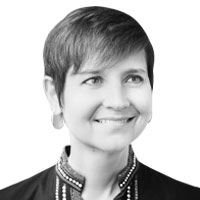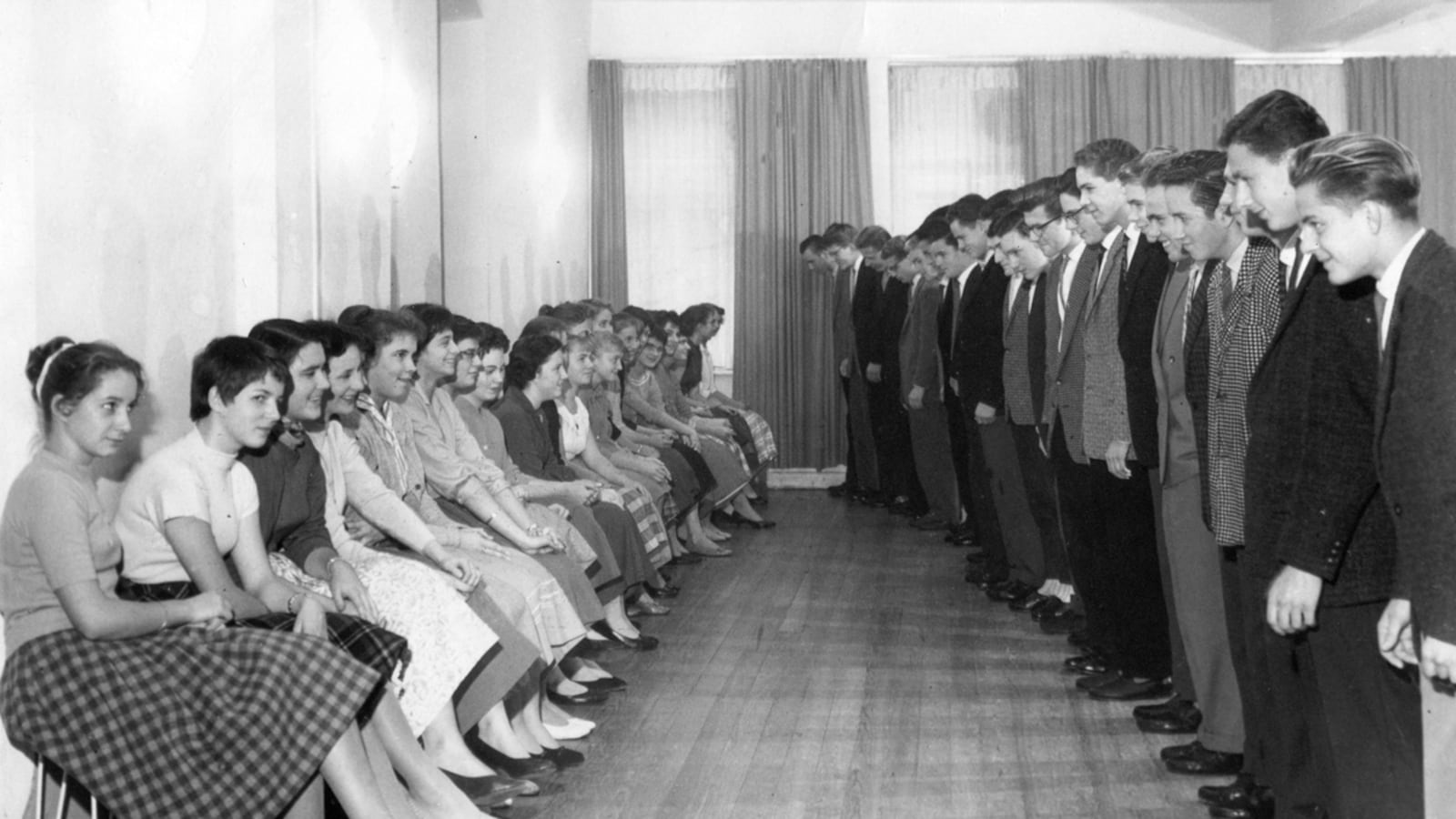A public middle school in West Virginia that teaches boys and girls in separate classrooms—based on a controversial theory that kids perform better that way—has ignited a lawsuit and a debate about public schools across the country that are experimenting with same-sex classes. Opponents say the practice is based on harmful stereotypes; proponents say girls and boys are motivated differently and that separating them helps them reach their full potential.

The American Civil Liberties Union said last week it has filed a lawsuit against Van Devender Middle School and its administrators in Parkersburg, W.Va., claiming gender discrimination. The suit, filed on behalf of a mother of three daughters who attend the school, contends, among other things, that the school lights its classrooms more brightly for boys than for girls—and encourages boys to move around freely throughout the day and girls to sit quietly and share their feelings.
“The school is dividing kids based on reproductive organs,” says Amy Katz, an attorney working with the ACLU.
The school’s program started in 2010, about a year after teachers attended a workshop conducted by Leonard Sax, a psychologist, physician, and author of three books on kids and education, including Why Gender Matters. Sax, who gives seminars around the country and runs a nonprofit group called the National Association for Single-Sex Public Education, argues that same-sex classes help students shed inhibitions and stereotypes that they can face in coed classes.
For instance, he says, boys often think that reading a book or excelling in class is uncool or “unmasculine.” A motivational tool he recommends is to divide boys into teams to compete in a book-reading competition. The same kind of contest wouldn’t motivate girls, he says, unless girls are on the same team as their friends. He says that’s because girls don’t like to compete against their friends.
Sax met with teachers at Van Devender at the school’s invitation in 2009, he says, explaining his theories and training the teachers on how to implement them. Van Devender started up a single-sex program for sixth-graders in reading, math, social studies, and science in the fall of 2010; the program has since been extended to seventh and eighth graders.
The principal of the school, Stephen Taylor, declined to comment for this article. In unveiling the program at Van Devender, he said in a video that the school had researched “the differences of how boys and girls’ brains are made up, what their interests are, what motivates them.” He said, “We know that boys have a much shorter attention span than girls have, so we have set the boys’ classrooms up so they can get up and move around, and lay on the floor if they want, whatever, while girls are much more organized; they sit at tables—round tables—facing each other, sharing things, doing that sort of thing. We know that boys like brighter lights, so we have the boys’ rooms lit a little differently than we do the girls’ rooms.”
Sax says teachers have claimed successes with the Van Devender program. He cites, for example, a teacher who started a “Battle of the Books” contest for her sixth-grade boys during the first year of the same-sex program. Sax says the boys beat the seventh- and eighth-grade teams, which were coed at that point, as they had not yet moved to the same-sex format.
He says his program gives kids confidence to succeed in a “sexist society.” For instance, he says, when a teacher asks a question in a coed class, “boys stick their hands up high in the air. A girl raises it to her shoulder. There’s an uncertainty. But the girl might know much more than the boys. The boys speak with no idea what they’re talking about.” In an all-girls class, he says, girls are encouraged to speak up without inhibition. He says the classes are not enforcing gender stereotypes, but doing the opposite—helping kids bust out of stereotypes.
Katz, the lawyer for the ACLU, says, “Yes, it’s a sexist society. You don’t have to make the schoolroom sexist.” She charges that the same-sex classes at Van Devender “do more harm than good. If you don’t fit whatever the crazy stereotype of the classroom is at Van Devender, you’re not a ‘proper’ girl or a ‘proper’ boy.” She says science doesn’t back up the programs at the school, citing a 2011 study called The Pseudoscience of Single-Sex Schooling. The study—a review of existing research conducted by several social scientists—concluded that single-sex education is ineffective.
The mother in the Van Devender lawsuit, who asked to remain anonymous to protect her privacy, according to the ACLU, says she has two daughters with eyesight problems, and that the school has refused to light the girls’ classroom as brightly as the boys’ room. Another daughter, who has ADD, gets regularly reprimanded for not sitting still, according to the ACLU; for punishment, she is sent to the boys’ room to sit facing a wall.
“My understanding is that the atmosphere in the girls’ room is Gestapo-like,” says Katz. “We’ve been told that girls are not allowed to move around the room. Boys have free run of the room.” She adds, “When the girls read a book, they sit in a circle on the floor and discuss how the book makes them feel. I know they’re not doing that in the boys’ room. My understanding is that after a test, boys go outside and run around. Girls get stickers.”
Sax says he doesn’t recommend brighter lighting for boys than girls. He says, however, that boys perform better in rooms with bulbs that provide “cool light” and girls perform better in rooms with “warm light.” He cites a 1995 study in the Journal of Environmental Psychology.
Katz says she understands schools are looking for ways to improve their performance. “Teachers are desperate out there. They’re under pressure to improve their numbers. I think they’re genuinely interested in helping kids,” she says. “But when you classify people by sex, you have to have a very good reason to do it—it can’t be based on stereotypes. That’s what these classes are doing.” She adds, “This is about schools that receive federal funds. Once you say the boys’ class is like this because boys are this way and the girls’ class is like this because they’re another way, you have a problem. We won’t even get into LGBT kids and how it can mess them up.”
The ACLU believes Van Devender is in violation of Title IX, the federal legislation that bans sex discrimination in schools that receive federal funds, and the 14th Amendment’s Equal Protection Clause, which says states must apply the law equally to everyone.
Federal law allows for single-sex public education, as long as certain parameters are met. For example, enrollment must be voluntary, and parents need to be provided with a coed option. Sax says there’s a coed school nearby in Parkersburg where parents can send their kids. Katz says the coed school is in a different zone and is filled with its own kids.
In a report on same-sex public education released this week, the ACLU said that “hundreds of these programs have been introduced across the country” since 2006, when federal restrictions against single-sex education were eased. Previously, the report said, “there had only been dozens.”
The ACLU says it has sent letters to school districts in Florida, Maine, Alabama, Mississippi, and Virginia, as well as to other schools in West Virginia, demanding that they end same-sex programs that “promote harmful sex stereotypes.” The group also says it has asked the Department of Education in Florida to investigate programs in that state, and that it has sent public-records requests to school districts in Massachusetts, Indiana, Idaho, Washington, and Illinois.
The effort is part of a new initiative at the ACLU called “Teach Kids, Not Stereotypes.” Katz says the group is locating same-sex public-school programs around the country through newspaper reports, then putting in public-records requests to find out more about the schools.
Sax says the real debate is whether the public sector should be prohibited from having the same choices as the private sector. “The ACLU attorneys are quite certain that they know what is best for every child in the public sector,” he says. “They are quite certain that every child will do better in a coed classroom.”
Katz accuses Sax of using “faulty research” in his teachings. Sax accuses the ACLU of casting itself as a “freedom fighter” and casting him as “the Ku Klux Klan.”






